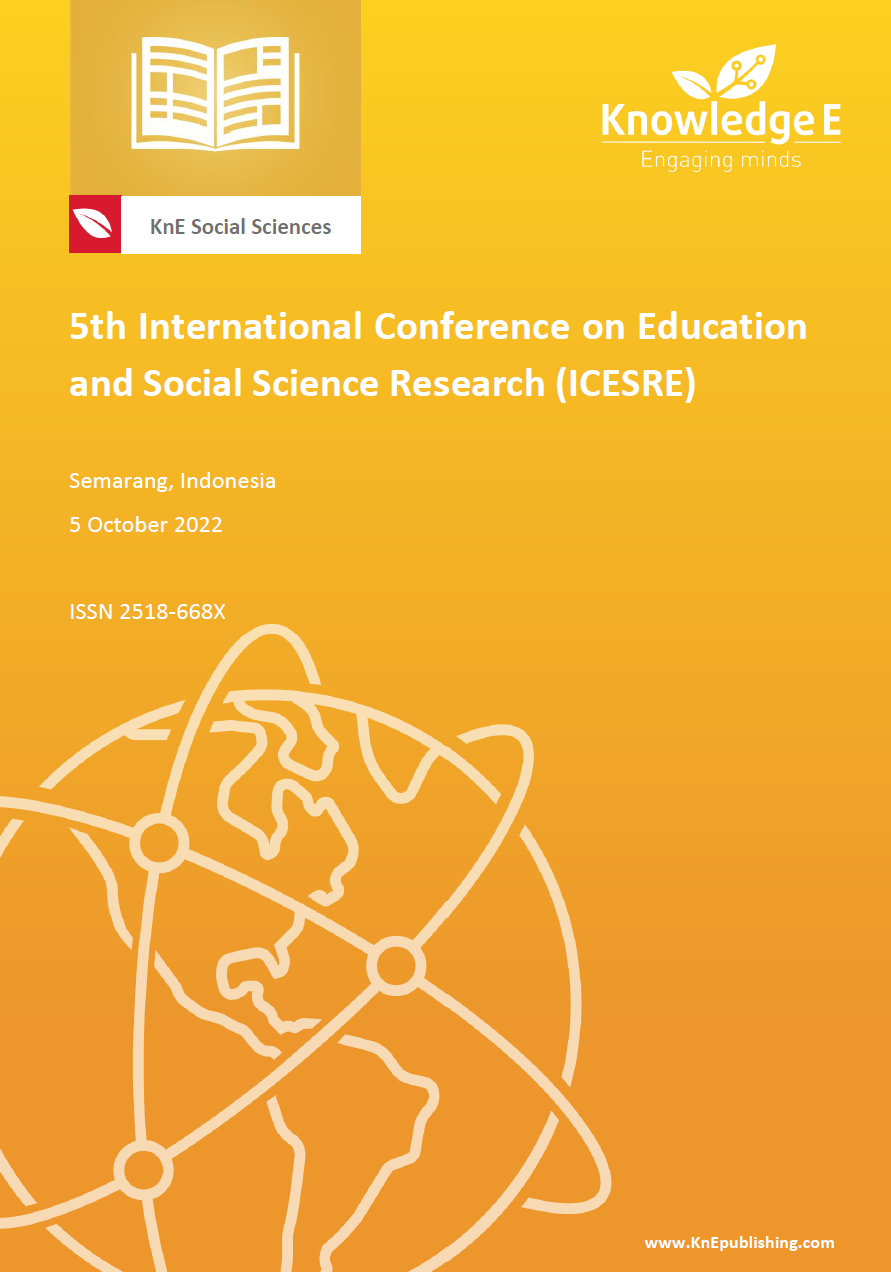Evidence-based Practice of School Management in PAUD Darussalam Pudak Payung Central Java Indonesia
DOI:
https://doi.org/10.18502/kss.v7i19.12432Abstract
This study aims to analyze the management of the Darussalam Pudak Payung Early Childhood Education Center, Central Java, Indonesia. The type of research used is descriptive qualitative research. The data collection techniques used are observation, interview, and documentation techniques. The key informant is the Principal, and their claims are compared with the claims of other informants, namely teachers, parents, and children. The data analysis technique used was the Miles and Huberman interactive analysis models, namely Data Reduction, Data presentation, and Conclusion Drawing or Verification. The results showed that the management of the Darussalam Pudak Payung Early Childhood Education Center implemented eight standards. Of the eight standards, five standards have been achieved or have advantages, namely Child Development Achievement Level Standards, Content Standards, Process Standards, Management Standards, and Assessment Standards. The implementation of the eight standards was not entirely successful. Of the eight standards, 3 standards have not been achieved or have shortcomings, namely the Standards for Educators and Education Personnel, Standards for Facilities and Infrastructure, and Standards for Financing.
Keywords: Management School, Early Childhood Education Standards, Early Childhood Education
References
[2] Suryana D, Rizka N. Manajemen pendidikan anak usia dini berbasis akreditasi lembaga.
[3] Bisschoff TC, Raj Mestry B. Financial school management explained. Pearson South Africa; 2009.
[4] Taulany H. Manajemen proses pembelajaran pendidikan anak usia dini pasca pandemi Covid-19. Prosiding Seminar Nasional Pascasarjana (PROSNAMPAS). 2020;3:150–157.
[5] Ismaya I, Sulaiman F, Firdiani D, Elihami E. Pembinaan lembaga PAUD menuju lembaga Terakreditasi di Kabupaten Enrekang. Maspul Journal of Community Empowerment. 2021;3:1–9.
[6] Sulaeman D. Manajemen Satuan PAUD ditinjau dari Standar Pengelolaan dalam Peningkatan Mutu Kelembambagaan. Edumaspul: Jurnal Pendidikan. 2021;5:458– 462.
[7] Leidner DE, Jarvenpaa SL. The use of information technology to enhance management school education: A theoretical view. MIS Quarterly. 1995:265–291.
[8] Schein EH. Career anchors and career paths: A panel study of management school graduates [Internet]. Washington, DC: Office of Naval Research; 1974. 36 p. Available from: https://eric.ed.gov/?id=ED099581
[9] Dimmock C. School-based management and school effectiveness. Routledge; 2013.
[10] Wellisch JB, MacQueen AH, Carriere RA, Duck GA. School management and organization in successful schools (ESAA In-Depth Study Schools). Sociology of Education. 1978:211–226.
[11] Bell L. Strategic planning and school management: Full of sound and fury, signifying nothing? Journal of Educational Administration. 2002;40:407–424.
[12] Murphy J, Beck LG. School-based management as school reform: Taking stock. Thousand Oaks, CA: Corwin Press, Inc; 1995.
[13] Alava J, Halttunen L, Risku M. Changing school management. Helsinki: Finnish National Board of Education; 2012.
[14] Hallinger P. Methodologies for studying school leadership: A review of 25 years of research using the principal instructional management rating scale. Annual Meeting of the American Educational Research Association, New York; 2008. 48 p.
[15] Mintzberg H. The design school: Reconsidering the basic premises of strategic management. Strategic Management Journal. 1990;11:171–195.

